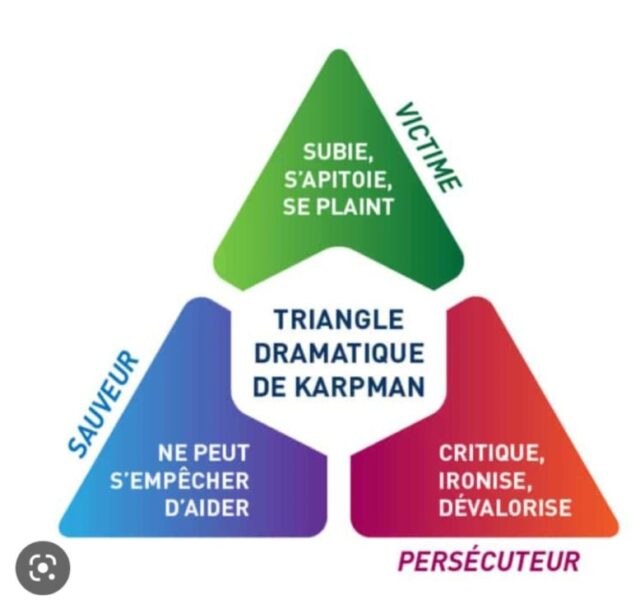The Drama Triangle is a psychological concept that describes the relational interactions between three roles: the persecutor, the victim, and the rescuer. This model was created by American psychologist Stephen Karpman in the 1960s, and it is often used to understand power dynamics and manipulation in interpersonal relationships.
In the Drama Triangle, the persecutor is the one who dominates and criticizes others, seeking to control and blame them for problems. The victim is the one who feels powerless and unable to defend themselves, often in a state of emotional distress and seeking help. The rescuer is the one who intervenes to help the victim, but can actually reinforce the dynamics of victimization and control.

The Drama Triangle can be present in many situations, such as romantic relationships, professional or family conflicts. For example, in a romantic relationship, the persecutor can be a jealous and possessive partner, the victim can be the other partner who feels trapped and powerless, and the rescuer can be a friend or family member who tries to help by taking sides for one of the partners.
The Drama Triangle can have harmful consequences on relationships, as it encourages manipulation and victimization. It is important to understand this model in order to identify these roles in relationships and work to change them. This can be done by striving to adopt non-violent communication and constructive conflict resolution, as well as by seeking to develop balanced and autonomous relationships rather than relationships based on power and dependence.
In conclusion, the Drama Triangle is a useful model for understanding complex relational interactions. By identifying the roles of persecutor, victim, and rescuer, it is possible to work towards improving relationships and avoiding manipulative and destructive behaviors.
